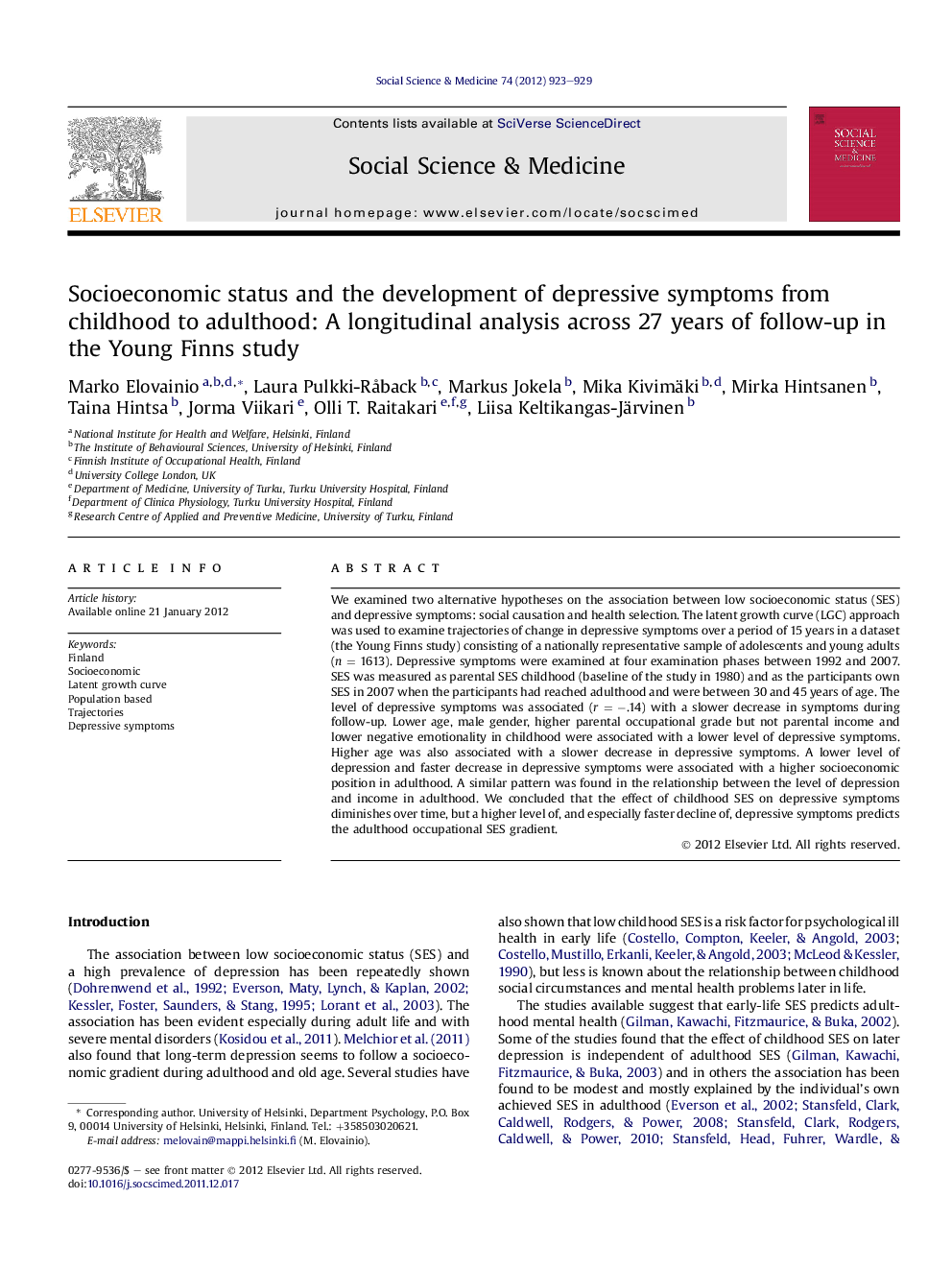| Article ID | Journal | Published Year | Pages | File Type |
|---|---|---|---|---|
| 952618 | Social Science & Medicine | 2012 | 7 Pages |
We examined two alternative hypotheses on the association between low socioeconomic status (SES) and depressive symptoms: social causation and health selection. The latent growth curve (LGC) approach was used to examine trajectories of change in depressive symptoms over a period of 15 years in a dataset (the Young Finns study) consisting of a nationally representative sample of adolescents and young adults (n = 1613). Depressive symptoms were examined at four examination phases between 1992 and 2007. SES was measured as parental SES childhood (baseline of the study in 1980) and as the participants own SES in 2007 when the participants had reached adulthood and were between 30 and 45 years of age. The level of depressive symptoms was associated (r = −.14) with a slower decrease in symptoms during follow-up. Lower age, male gender, higher parental occupational grade but not parental income and lower negative emotionality in childhood were associated with a lower level of depressive symptoms. Higher age was also associated with a slower decrease in depressive symptoms. A lower level of depression and faster decrease in depressive symptoms were associated with a higher socioeconomic position in adulthood. A similar pattern was found in the relationship between the level of depression and income in adulthood. We concluded that the effect of childhood SES on depressive symptoms diminishes over time, but a higher level of, and especially faster decline of, depressive symptoms predicts the adulthood occupational SES gradient.
► Higher initial level of and faster decline of depressive symptoms predict adulthood occupational gradient and especially income among Finnish men and women. ► Childhood socioeconomic position seems to influence risk of depressive symptoms, but this effect diminishes over time. ► Both social causation and health related selection affect socioeconomic gradient in depressive symptoms.
